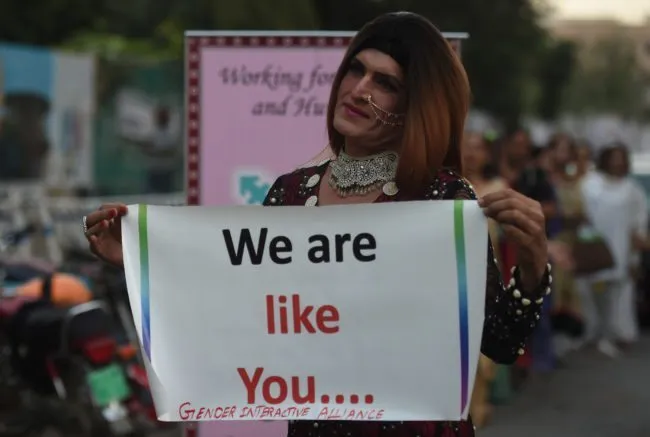The World Health Organisation announces it finally no longer classifies being transgender as a mental disorder

Maine legally recognised non-binary people on official documents earlier this year (Scott Olson/Getty Images)
The World Health Organisation (WHO) announced on Monday that being transgender will no longer be classified as a mental illness, in a move that has been hailed as a “very strong message.”
In the long-awaited and welcome change, the UN health agency confirmed that there is no evidence that gender incongruence is a mental disorder as they revised their International Classification for Diseases (ICD), and say that the release of this information should help combat the stigma that trans people face.

The World Health Organisation announced on Monday that it was finally no longer classifying being transgender as a mental illness (ASIF HASSAN/AFP/Getty)
The report states: “Gender incongruence, meanwhile, has also been moved out of mental disorders in the ICD, into sexual health conditions.
“The rationale being that while evidence is now clear that it is not a mental disorder, and indeed classifying it in this can cause enormous stigma for people who are transgender, there remain significant health care needs that can best be met if the condition is coded under the ICD.”
Geoffrey Reed, the psychologist coordinating the mental health and behaviour sections of the ICD, added that trans people will be able to access more appropriate care easily than they previously may have done.
He said: “The intention is to reduce barriers to care.”

Top psychologists say the long-awaited change will help remove the stigma that trans people are faced with (Getty)
And professor of clinical psychology at Columbia University and chief consultant to the new section of the code highlighted the social benefits of the sending this “very strong message.”
“It’s sending a very strong message that the rest of the world is no longer considering it a mental disorder. One of the benefits of moving it out of the mental disorder section is trying to reduce stigma.”
31 countries were involved in the ICD testing, with 1673 participants taking part in 112383 code assignment.
After a poll 1000 different workplaces, 43 percent of employers said that they are “unsure” if they would hire a transgender person in their workplace.

The aim is to send a ‘very strong message’
Out of the 1 in 3 employers admitting they are “less likely” to hire a transgender person, just 8 percent said that they believe they should have the same rights to be employed as a cisgendered person, in a survey carried out by Crossland Employment Solicitors.
However, this transphobia is not limited to the workplace.
More than half – 51 percent – think Women’s Aid, the UK domestic violence charity, is wrong to consider lifting its ban on transgender women working in their refuges.
And, nearly a quarter – 23 percent – think that the Labour Party was wrong to open its all-women shortlists to self-identifying transgender women.

